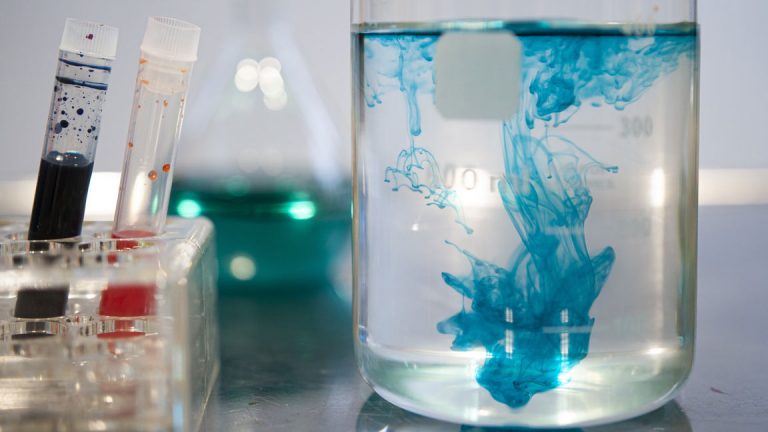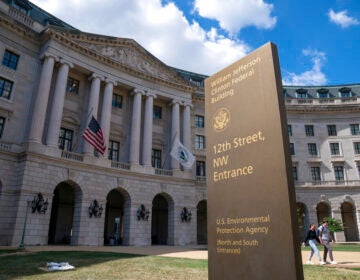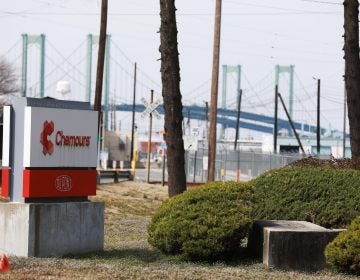N.J. DEP’s PFAS directive to chemical companies will take ‘years’ to resolve
Five chemical companies have been accused of contaminating many areas of New Jersey with toxic PFAS chemicals.

DEP spokesman says, “These are very complex discussions that will take years to resolve…” (Bokskapet/Pixabay/NJ Spotlight)
The state Department of Environmental Protection says it will take “years” to resolve its dispute with five chemical companies which it has accused of contaminating many areas of New Jersey with toxic PFAS chemicals.
Some nine months after issuing a strongly worded “Directive” to the companies to test, treat and remove the chemicals from soil and water around their facilities, the DEP issued a statement on Jan. 17 in response to a question from NJ Spotlight on why it had said nothing publicly about the initiative since announcing it in March 2019.
“As one part of its ongoing efforts to protect New Jersey residents from the PFAS group of chemicals, the DEP continues to engage in discussions and litigation with the companies named in the directive,” spokesman Larry Hajna wrote in an email. “These are very complex discussions that will take years to resolve in order to address PFAS contamination throughout the state.”
Environmental campaigners said the DEP’s new prediction that it would take years for any resolution with the chemical companies raised questions about whether it was backing away from its original demands in the face of strong pushback from the chemical industry.
The directive, based on four state environmental laws, said the companies were responsible for “significant contamination of New Jersey’s natural resources” with PFAS chemicals including PFNA (perfluorononanoic acid), PFOS (perfluorooctanesulfonic acid) and PFOA (perfluorooctanoic acid), all of which have been linked to illnesses including some cancers, immune-system problems, ulcerative colitis, and elevated cholesterol, according to state and federal studies.
‘Forever chemicals’
Per- and polyfluoroalkyl (PFAS) chemicals, once used in consumer products including Teflon, have been found at higher levels and in more places in New Jersey than in many other states, according to state and federal studies over the last decade. Even though they have been phased out by major U.S. chemical manufacturers, they do not biodegrade, and so represent a continuing threat to public health in waterways and soil. Campaigners call them “forever chemicals.”
They remain unregulated by the U.S. Environmental Protection Agency which said it would decide by the end of 2019 whether to begin setting enforceable limits for PFOA and PFOS but has not yet done so.
On Jan. 10, the House of Representatives approved a bill that would set a deadline for the EPA to regulate the chemicals. President Trump earlier threatened to veto the bill if it reaches his desk. But it may fail in the Republican-controlled Senate, according to one staffer for a New Jersey congressman.
In the absence of federal action, and with growing public concern about water contamination, some states including New Jersey have set strict health limits for some PFAS chemicals in drinking water. The DEP adopted the nation’s first health standard for PFNA in 2018 and is expected to officially approve limits for PFOS and PFOA soon, under pressure from advocates to do so before a proposed rule on those chemicals expires in April.
In its directive, the DEP named Solvay Specialty Polymers, E.I. DuPont de Nemours & Co., DuPont Specialty Chemicals, the Chemours Company, and 3M as having caused the contamination. It demanded a full accounting of their use of the chemicals, and ordered them to pay for testing, treatment and cleanup, arguing that that taxpayers, via the DEP, should no longer have to bear that burden.
The companies denied responsibility
All five companies denied they were responsible for the alleged contamination and argued that they were not obligated to pay for future cleanup. Lawyers for DuPont and Chemours said the directive was “untenable” and “unsupported by factual findings.”
In a letter obtained by NJ Spotlight via an Open Records Act request this month, Solvay denied it was liable under New Jersey’s Spill Act for PFAS contamination near its plant in West Deptford, Gloucester County, and said DEP was being “unreasonable” by trying to shift the cost of statewide cleanup to Solvay and the other companies.
Solvay, which voluntarily ended its use of PFNA in 2012, said it had been investigating and remediating PFAS chemicals at the site since 2013, and had already spent $25 million on the measures.
3M, in another letter obtained from the OPRA request, said DEP didn’t have the statutory authority for some of its demands, and denied it was liable for funding the cleanup under New Jersey law.
Among campaigners raising questions about whether the DEP is backing away from its original demands is Tracy Carluccio, deputy director of the environmental group Delaware Riverkeeper Network, and a longtime advocate for tighter curbs on PFAS.
Concern that state is ‘wavering’
“If New Jersey is wavering under this task and is going to shrink from its lofty announced goal, confidence in the state will be lost and people will pay the price with their health,” she said.
The sweeping nature of the DEP’s directive suggests it will take time to resolve the matter, and so the public at least deserves an interim report from the state attorney general’s office on the status of the talks, Carluccio said.
“That’s the only way the public can have confidence that the state is vigorously investigating and ‘staying the course’ towards making these companies accountable for the widespread contamination they have caused,” she said.
She noted that documenting PFAS contamination by DuPont in Parkersburg, West Virginia took plaintiffs’ attorney Robert Billott some 20 years before winning a series of jury awards for people whose illnesses were linked to the chemicals — as described in his recent book “Exposure,” and the movie “Dark Waters.”
Jeff Tittel, director of the New Jersey Sierra Club, accused the DEP of failing to follow through on its directive and of now seeking a settlement that will allow corporate polluters to avoid full responsibility.
He argued that the DEP has the authority under the Spill Act to take over contaminated sites and bill the owners for cleanup, but is not acting on that.
“Instead of putting force in enforcement, the DEP is hoping to delay and settle, turning this into a farce,” Tittel said. “They just hope the public doesn’t notice. For far too long, companies like Dow and DuPont have gotten away with polluting our state. Unfortunately, it looks like this administration will let them get away with it again.”
WHYY is your source for fact-based, in-depth journalism and information. As a nonprofit organization, we rely on financial support from readers like you. Please give today.




